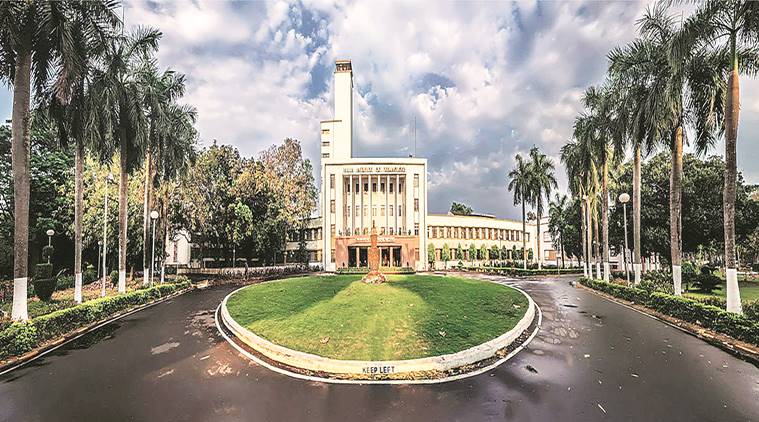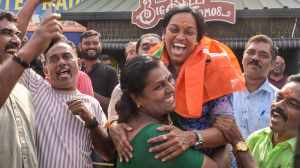 IIT Kharagpur.
IIT Kharagpur.
The country’s premier engineering institutes, the Indian Institutes of Technology (IITs), may permit academically weak students to exit early, after three years, with a B.Sc. degree in engineering.
The proposal is on the agenda of the IIT Council meeting called Friday, The Indian Express has learned. The Council, headed by the Human Resource Development Minister, is the highest decision-making body of all the 23 institutes.

Currently, students enrolled in undergraduate programmes across all IITs are awarded a B.Tech degree after completing eight semesters or four years. However, students with weak grades drop out midway.
WATCH | Why most drop-outs from IITs, IIMs are from reserved category?
According to data shared by the HRD Ministry in Parliament this year, 2,461 students dropped out of different IITs in the last two years across B.Tech and post-graduate programmes. These include cases of expulsion on account of weak academic performance. For instance this year, IIT-Kanpur expelled 18 students on the grounds of poor grades, of which half were B.Tech students.
It is for such students the HRD Ministry has proposed that the IITs consider providing an exit option after six semesters. As per the Council agenda, the IITs have been asked to approve the proposal to allow academically weak students to opt for B.Sc. (Engineering) after the second semester and leave after three years, provided they have met the minimum academic standards.
If approved, the IITs will implement the suggestion from the current academic year, said sources.
Story continues below this ad
An estimated 9 lakh students take each cycle of the JEE (main) that’s held twice a year — just about 13,500 get an IIT seat.
The Council will also consider a proposal to empower the Board of Governors of an IIT to pick its members and chairperson. Currently, the HRD Ministry appoints them.
This autonomy is on the lines of what has been granted to the IIMs under the new IIM Act. IIT directors, according to the agenda, will continue to be selected by the government. However, apart from the IIT Council’s approval, the IIT Act will also have to be amended to finally empower the IITs.
READ | Give student loans on future income: IIT-Delhi
That apart, the meeting agenda also proposes a new model of financial autonomy for the IITs, in which the institutes will charge tuition fees based on actual costs (roughly Rs 7 lakh per year) from the students. The government, on the other hand, will provide financial help directly to the students through scholarships or “in any other manner as it deems fit”. This will replace the block grants that the IITs receive from the government and, hence, give them the freedom from government restrictions on how to use their financial resources.
Story continues below this ad
Currently, IIT students pay only Rs 2 lakh per annum as tuition fee. Moreover, almost half of the BTech students at IITs under the SC/ST category are exempt from paying tuition fees. The institutes bear the difference between actual cost and income through their internal accruals and block grants received from the government.

 IIT Kharagpur.
IIT Kharagpur.






























